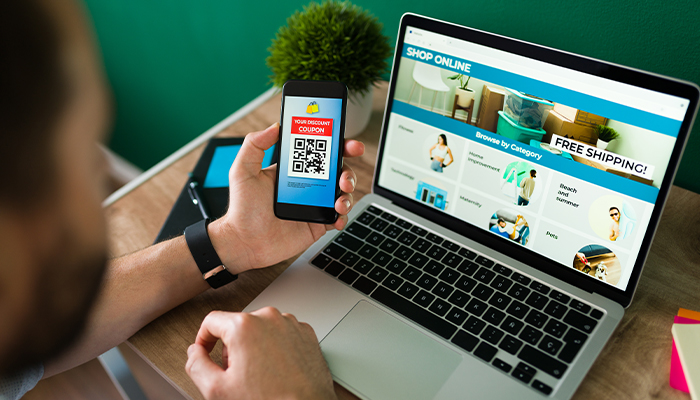How Much Does it Cost to Build an E-commerce App like Ship Station?

MAY, 13, 2024 11:45 AM
How Much Does it Cost to Build an E-commerce App like Ship Station?
In today's digital age, the e-commerce industry continues to thrive, with businesses constantly innovating to improve efficiency and customer experience. ShipStation, a prominent player in the e-commerce logistics sector, has gained widespread recognition for its comprehensive shipping management solutions. This blog aims to delve deep into the cost estimation of developing an e-commerce app like ShipStation, tailored for PerfectionGeeks Technologies.
Understanding ShipStation's Features and Business Model
Before delving into cost analysis, let's explore the key features and business model that have contributed to ShipStation's success:
Multi-Carrier Integration: ShipStation seamlessly integrates with multiple shipping carriers, allowing users to compare rates, print labels, and track shipments from a unified platform.
Order Management: It offers robust order management features, including order syncing, batch processing, automation rules, and custom tags for streamlined fulfillment.
Inventory Management: ShipStation provides inventory tracking, low-stock alerts, barcode scanning, and SKU management to help businesses manage their inventory effectively.
Shipping Automation: Users can automate shipping workflows, generate shipping labels in bulk, set shipping presets, and schedule pickups for efficient order fulfillment.
Analytics and Reporting: ShipStation offers detailed analytics, reporting dashboards, shipping cost analysis, and insights into shipping performance to optimize operations and reduce costs.
Multi-Channel Integration: It integrates with various e-commerce platforms, marketplaces, and shopping carts, allowing users to manage orders from different sales channels in one place.
User-Friendly Interface: ShipStation's intuitive interface, customizable dashboard, mobile app support, and customer support features enhance the user experience and satisfaction.
Factors Affecting Development Costs
Several factors influence the cost of developing an e-commerce app like ShipStation:
Scope and Complexity: The app's scope, complexity, and scale of features, including shipping integrations, order management, inventory tracking, automation, analytics, and user management, impact development costs.
Platform Selection: Choose between developing a native app for iOS or Android, or opt for cross-platform development using frameworks like React Native or Flutter, each with its own cost implications.
Design Requirements: High-quality UI/UX design, customization, responsive design for mobile devices, and accessibility features contribute to design costs.
Technology Stack: The choice of backend development (Node.js, Python, Ruby on Rails) and frontend development (React.js, Vue.js, Angular) affects development costs based on scalability, performance, and maintenance requirements.
Third-Party Integrations: Integrating with shipping carriers, payment gateways, inventory management systems, CRM tools, and APIs for data exchange adds development and integration costs.
Security and Compliance: Implementing robust security measures, SSL encryption, PCI DSS compliance for payment processing, GDPR compliance for data protection, and data backup solutions add to development costs.
Testing and QA: Budget for thorough testing, including functional testing, performance testing, usability testing, security testing, and compatibility testing across devices and platforms.
Post-Launch Support: Factor in costs for ongoing maintenance, updates, bug fixes, feature enhancements, customer support, and server hosting or cloud services.
Cost Breakdown and Estimation

To provide a comprehensive cost breakdown, let's categorize the development process into key components and estimate the associated costs:
Planning and Analysis
- Business Analysis: $2,000-$5,000
- Market Research: $1,000-$3,000
- Requirement Gathering: $1,500-$3,500
- Project Management: $2,500-$6,000
Design
- UI/UX Design: $5,000-$15,000
- Wireframes and Prototyping: $1,500-$4,000
- Responsive Design: $2,000-$5,000
- Graphic Design (Icons, Images): $1,000-$3,000
Development
- Backend Development: $10,000-$30,000
- Frontend Development: $8,000–$25,000
- Database Development: $5,000-$15,000
- Third-Party Integrations: $3,000-$10,000
Testing and QA
- Quality Assurance: $5,000–$12,000
- Testing Tools and Infrastructure: $2,000–$5,000
Launch and Post-Launch
- App Deployment: $1,000-$3,000
- Initial Marketing: $3,000–$8,000
- Maintenance and Support (6 months): $10,000-$20,000
Note: The cost estimates provided are approximate and can vary based on project requirements, complexity, team expertise, and geographical location.
Essential Features of an E-Commerce App Like ShipStation
To ensure the app's success and competitiveness, consider incorporating the following essential features:
Shipping Carrier Integration: Integrate with major shipping carriers (UPS, FedEx, USPS, and DHL) to provide real-time rates, label generation, and shipment tracking.
Order Management: Enable order syncing, batch processing, order splitting, custom tags, and automation rules for efficient order fulfillment.
Inventory Management: Implement inventory tracking, low-stock alerts, barcode scanning, SKU management, and multi-warehouse support.
Shipping Automation: Offer shipping presets, automated label printing, shipping rules, address validation, and delivery scheduling.
Analytics and Reporting: Provide shipping analytics, cost analysis, shipping performance insights, and customizable reporting dashboards.
Multi-Channel Integration: Integrate with e-commerce platforms (Shopify, WooCommerce, Magento), marketplaces (Amazon, eBay), and shopping carts for seamless order management.
User Management: Allow multiple user roles (admin, staff, customer), user permissions, user profiles, and account management features.
Customization and Branding: Offer customization options, branding elements, custom email notifications, and white-label solutions for businesses.
Security and Compliance: Ensure data security, SSL encryption, PCI DSS compliance, GDPR compliance, data backups, and user authentication measures.
Monetization Strategies
To monetize the app and generate revenue, consider the following monetization strategies:
Subscription Plans: Offer tiered subscription plans (basic, standard, and premium) with varying features, shipping volume limits, and pricing tiers.
Transaction Fees: Charge transaction fees or commissions based on shipping volume, order value, or carrier rates.
Customization Fees: Charge fees for customizations, white-label solutions, branding elements, and additional services.
Value-Added Services: Offer value-added services such as insurance coverage, package tracking upgrades, expedited shipping options, and fulfillment services for additional revenue streams.
Affiliate Programs: Partner with shipping carriers, e-commerce platforms, and third-party providers for affiliate marketing opportunities and referral commissions.
Marketing Strategies for App Launch and Growth
Once the app is developed, marketing strategies play a crucial role in its successful launch and sustained growth.
App Store Optimization (ASO): Optimize app metadata, keywords, screenshots, and descriptions for better visibility and ranking on app stores.
Content Marketing: Create engaging content such as blogs, videos, tutorials, and case studies highlighting the app's features, benefits, and success stories to attract users and improve SEO.
Social Media Marketing: Leverage social media platforms (Facebook, Instagram, LinkedIn, and Twitter) to showcase the app, run targeted ads, engage with users, and build a community.
Influencer Marketing: Collaborate with industry influencers, bloggers, and thought leaders to endorse the app, create sponsored content, and reach a wider audience.
Email Marketing: Build an email list of potential users, send newsletters, promotional offers, and updates about app features, discounts, and events to nurture leads and drive conversions.
PR and Press Coverage: Reach out to tech journalists, bloggers, and media outlets for app reviews, press releases, interviews, and featured articles to generate buzz and credibility.
App Launch Events: Organize virtual or physical launch events, webinars, demo sessions, and contests to engage users, gather feedback, and create hype around the app launch.
User Acquisition Campaigns: Run targeted user acquisition campaigns, CPI ads, Google Ads, Facebook Ads, and App Store Search Ads to attract relevant users and increase app downloads.
User retention and engagement strategies
Beyond acquiring new users, retaining and engaging existing users is essential for long-term success.
Onboarding Experience: Provide a seamless onboarding experience with guided tours, tutorials, tooltips, and welcome messages to help users understand and navigate the app.
Personalization: Tailor app experiences based on user preferences, behavior, purchase history, and location, offering personalized recommendations, promotions, and notifications.
Engagement Features: Implement gamification elements, rewards programs, loyalty points, badges, challenges, and referral bonuses to encourage user engagement and retention.
Push Notifications: Send targeted push notifications for order updates, promotions, abandoned carts, flash sales, and personalized offers to re-engage users and drive conversions.
Feedback Mechanisms: Collect user feedback, ratings, reviews, and surveys within the app, and use insights to improve the user experience, address issues, and prioritize feature enhancements.
Customer Support: Offer responsive customer support channels (live chat, email, phone) with quick resolution times, FAQs, knowledge base articles, and chatbots for instant assistance.
Retention Campaigns: Run retention campaigns, re-engagement ads, win-back campaigns, and exclusive offers for loyal customers to incentivize repeat purchases and customer loyalty.
Data analytics and optimization
Utilize data analytics tools and techniques to gather actionable insights, optimize app performance, and make informed decisions.
User Analytics: Track user behavior, engagement metrics, retention rates, churn rates, conversion funnels, in-app purchases, and ROI to understand user preferences and optimize user journeys.
Performance Monitoring: Monitor app performance, load times, crash reports, error logs, server response times, and API performance to identify and fix issues promptly.
A/B Testing: Conduct A/B tests, split tests, and multivariate tests to experiment with app features, UI/UX elements, pricing strategies, and marketing campaigns, measuring their impact on user engagement and conversion rates.
Market Research: Analyze market trends, competitor strategies, customer feedback, app store ratings, and industry benchmarks to stay competitive, identify growth opportunities, and adapt strategies accordingly.
Security and Privacy: Regularly audit app security, encryption protocols, user data handling practices, GDPR compliance, and implement necessary updates and enhancements to protect user data and build trust.
Scaling and future growth strategies
As the app gains traction and user base, focus on scaling and expanding into new markets.
Scalable Infrastructure: Ensure your app infrastructure, servers, databases, and APIs are scalable, reliable, and capable of handling increased user traffic, data volume, and transactions.
Global Expansion: Localize app content, language support, currency options, and adapt to regional preferences, regulations, and shipping logistics for international markets.
New Features and Innovations: Continuously innovate by adding new features, integrations (AI, AR/VR), and value-added services to stay competitive, improve the user experience, and attract new users.
Partnerships and Collaborations: Collaborate with strategic partners, shipping carriers, e-commerce platforms, third-party providers, and industry associations for synergistic growth opportunities, co-marketing campaigns, and business partnerships.
Customer Feedback and Iteration: Actively seek user feedback, conduct user testing and usability studies, and iterate based on user insights, trends, and market demands to stay agile and customer-centric.
Conclusion
In conclusion, building an e-commerce app like ShipStation requires a strategic approach encompassing app development, marketing strategies, user engagement tactics, data analytics, and continuous optimization. By leveraging innovative technologies, user-centric design, robust security measures, and effective marketing campaigns, PerfectionGeeks Technologies can create a competitive advantage in the e-commerce logistics industry and deliver value to businesses and users alike.
If you're ready to embark on this journey or need further guidance and support, PerfectionGeeks Technologies is here to help you navigate the complexities of app development, marketing, and growth strategies. Together, we can build a successful e-commerce app that revolutionizes shipping and logistics for businesses worldwide.
Strategy
Design
Blockchain Solution
Development
Launching
Testing
Maintenance
Contact US!
India

Plot 378-379, Udyog Vihar Phase 4 Rd, near nokia building, Electronic City, Phase IV, Sector 19, Gurugram, Haryana 122015
Copyright © 2026 PerfectionGeeks Technologies | All Rights Reserved | Policy
Contact US!
India 
Plot 378-379, Udyog Vihar Phase 4 Rd, near nokia building, Electronic City, Phase IV, Sector 19, Gurugram, Haryana 122015
Copyright © 2026 PerfectionGeeks Technologies | All Rights Reserved | Policy





